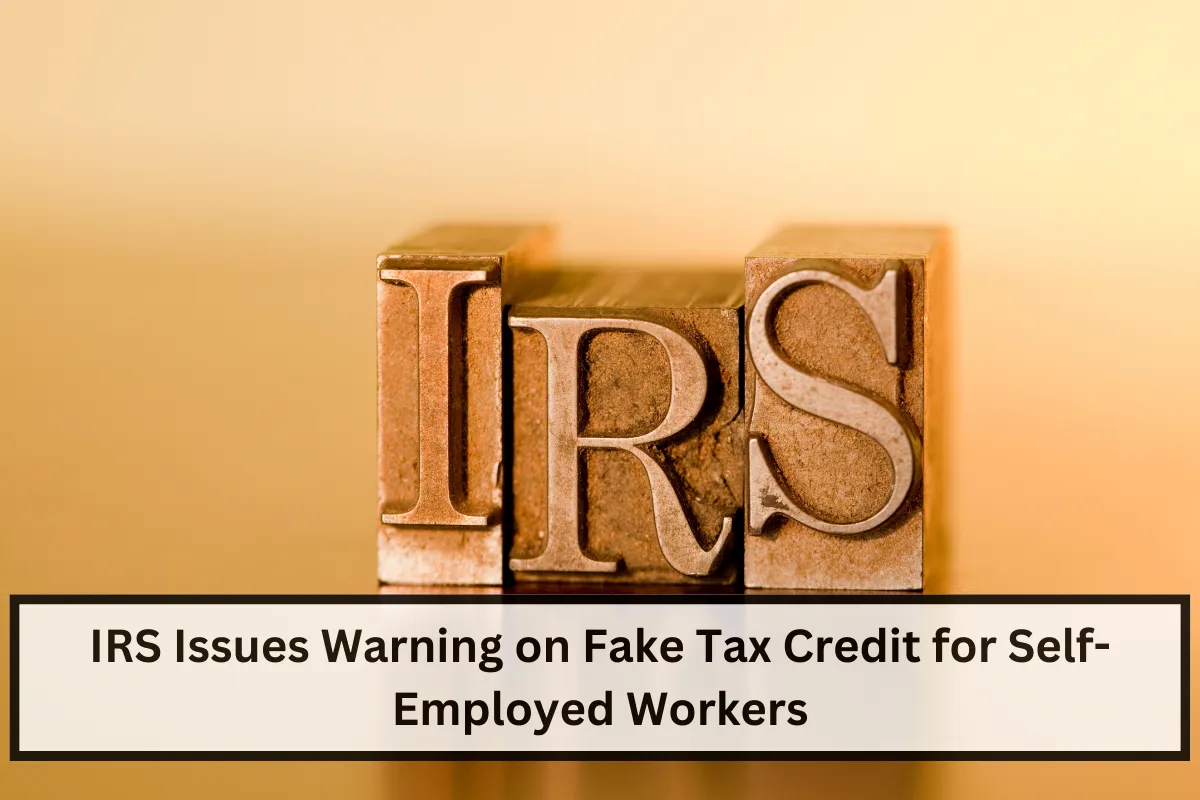In recent times, there has been a lot of misleading information about tax credits circulating on social media. Many taxpayers have started believing false claims, especially about a tax credit for self-employed and gig workers.
The Internal Revenue Service (IRS) has issued a warning about these false claims and made it clear that they are not true. Here’s what you need to know about these misleading tax break offers.
What Is the False Claim?
The IRS has warned that there are rumors online suggesting that self-employed individuals and gig workers can claim a tax credit worth up to $32,000 due to the COVID-19 pandemic.
This claim, often shared on social media, has led many taxpayers to believe they are eligible for a large refund. However, the IRS has stated that this information is false and should not be trusted.
What Did the IRS Say?
IRS Commissioner Danny Werfel addressed these false claims, saying, “This is another false social media claim that’s leading honest taxpayers to believe they’re due a big payday.”
The IRS advises that before paying anyone to file claims based on these false rumors, taxpayers should consult a trustworthy tax professional to make sure they are eligible for any available credits.
Does the IRS Recognize This Tax Credit?
The IRS has clarified that while there are some tax breaks available for self-employed individuals, they are very limited.
These tax credits are specifically for those who had to stop working to take care of a sick family member or due to COVID-related issues in 2020 and 2021.
These credits are only available to a small group of people who meet specific criteria, and the claim that everyone can benefit from these breaks is false.
Why Should You Be Careful?
The IRS has noted that there have been thousands of questionable claims about these tax credits, which has led to delays in refunds and the need for taxpayers to provide extra documentation.
People looking for quick refunds may be tempted to fall for these scams, but the IRS urges taxpayers to seek help from a professional tax expert rather than relying on unverified online information.
The History of False Tax Credit Claims
This “Self Employment Tax Credit” is just the latest false claim circulating on social media. In the past, there have been similar false claims about other tax credits, such as fuel tax credits and household employment taxes.
These claims are often marketed as hidden government secrets, but in reality, they are available only to a very small group of people who meet specific criteria.
Why You Should Avoid Social Media Tax Advice
The IRS has warned that these types of scams can cause serious issues, including delays in refunds and the need to prove eligibility with proper documentation. Taxpayers are encouraged to only trust information from the IRS’s official website or from a certified tax expert.
It’s important to stay cautious about the tax-related information you see on social media. False claims about large tax credits can lead to big problems, such as delayed refunds and unnecessary stress. Always check with a professional to ensure your tax return is correct and you are not falling victim to a scam.

